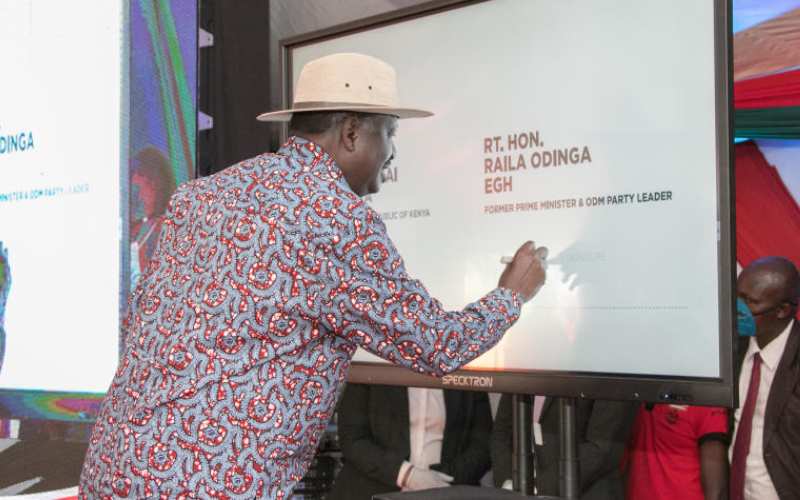×
The Standard e-Paper
Stay Informed, Even Offline

Former Prime Minister Raila Odinga during the launch of the BBI signature collection exercise at KICC, Nairobi, last year. [Courtesy]
The May 13 High Court condemnation of the Building Bridges Initiative (BBI) has thrown many political careers into a nose-dive, with the likelihood of ultimate political destitution and even extinction for some. Billed as the silver bullet to end election-related violence in Kenya, BBI has also been seen as a political power-sharing instrument for the political top brass.